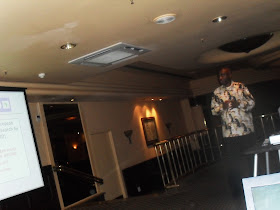The directory aims to promote interaction and active partnerships among governments, private sector and key development organisations in civil society, including NGOs, trade unions, faith-based organizations, indigenous peoples movements, foundations and research centres. In creating opportunities for dialogue with governments and private sector, civil society organizations are helping to amplify the voices of the poorest people in the decisions that affect their lives, improve development effectiveness and sustainability and hold governments and policymakers publicly accountable.
In particular, the directory is intended to provide a comprehensive source of reference for development practitioners, researchers, donor employees, and policymakers who are committed to good governance, sustainable development and poverty reduction, through: the financial sector and microfinance, trade and business development services, rural development and appropriate technology, private sector development and policy reforms, legislation & rule of law and good governance, community development and social protection, gender equality and participation, environment and health, research, training and education.
| |||||||||||
Volume I Africa provides 135 hits on agriculture | |||||||||||
A directory of Agricultural Research Institutes was developed by AfDevInfo. The database was designed in the UK with research conducted by London-based African postgraduate students. After three years of development the project failed to reach its aim of becoming a commercially self-sustaining project, and when not-for-profit funding efforts failed, the database was put into hibernation in October 2008. But it can still be accessed on http://www.afdevinfo.com/htmlreports/ss86.html . It was also resuscitated by isiAfrica, a site that tracks public information systems in Africa
ITOCA maintains the portal for Tertiary Agricultural Education (TAE) in Africa. The portal was developed through funding from the Bill and Melinda Gates Foundation. The portal data is available on the public domain. This resource provides free access to up-to-date information on agricultural education and training (AET) for Sub Sahara Africa institutions with the aim to inform development work in the sector. The portal tracks student enrolment, faculty, courses and graduate output at over 400 member universities and technical training colleges awarding degrees, diplomas and certificates in agriculture and related disciplines in the region.










